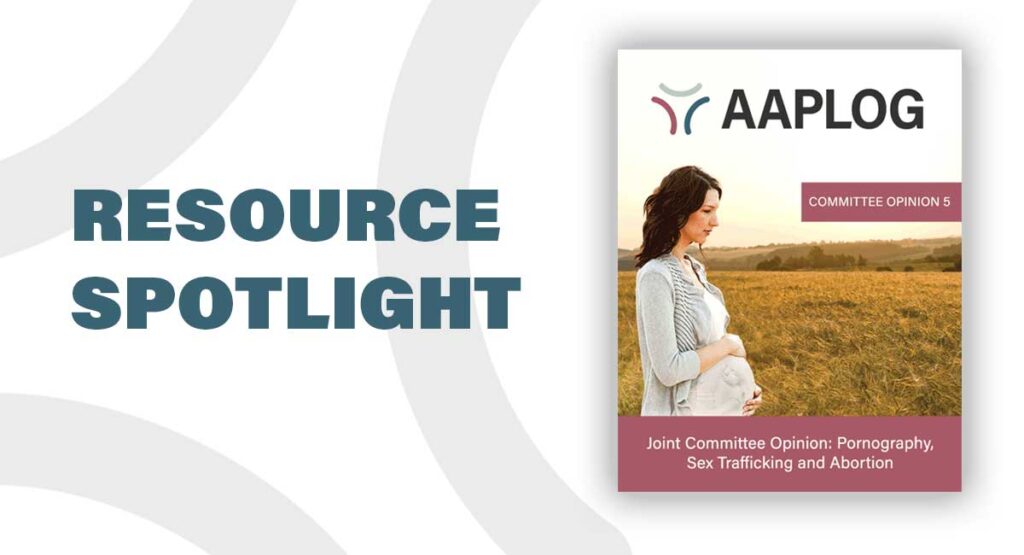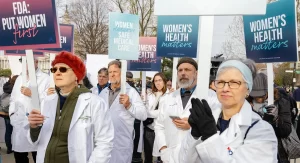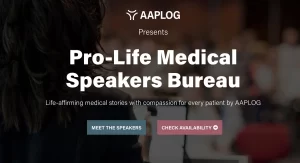AAPLOG is committed to empowering pro-life medical professionals to provide an evidence-based defense of care for both pregnant and preborn patients. To that end, we offer several free resources on our website that are accessible to members and non-members alike, including 11 Committee Opinions and 12 Practice Guidelines.
We want to highlight one of these resources, our 5th committee opinion, which we co-authored with the American College of Pediatricians (ACPeds). The purpose of this paper is to provide evidence of the symbiotic relationship between pornography, sex trafficking, and abortion. It is difficult to separate sexual exploitation and sex trafficking from pornography and abortion. Pornography is potentially addictive and can lead to compulsive sexual behavior, including violence against women and children. Pornography is also a tool for traffickers, who use it to groom victims of sex trafficking. Survivors of sex trafficking report beatings, rape, torture, and the use of drugs and/or alcohol as a means of control and entrapment in trafficking. As a result, survivors often experience a significant number of health problems, both mental and physical. Not surprisingly, many experience reproductive health issues and/or trauma, including multiple abortions, many of which may be forced. Pornography and sex trafficking are co-dependent health crises that are on the rise. Victims of trafficking interact with the healthcare system multiple times through the course of their being trafficked. Therefore, healthcare professionals are well positioned to be “first responders”. Health professionals may play a vital role in breaking the vicious cycle of exploitation, entrapment and abuse. It is clear that efforts to combat sex trafficking must include 1) raising public awareness regarding the role pornography plays, 2) training healthcare professionals to recognize and intervene on behalf of sex trafficked victims, and 3) mandated reporting of abortions below age of consent with immediate referral to child protective services.
We strongly encourage members to utilize our Committee Opinions and Practice Guidelines as they are invaluable resources to help support and inform the care you provide to your patients. If you have feedback on any of these resources or are interested in contributing to them, please feel free to reach out to our research team at research@aaplog.org.






